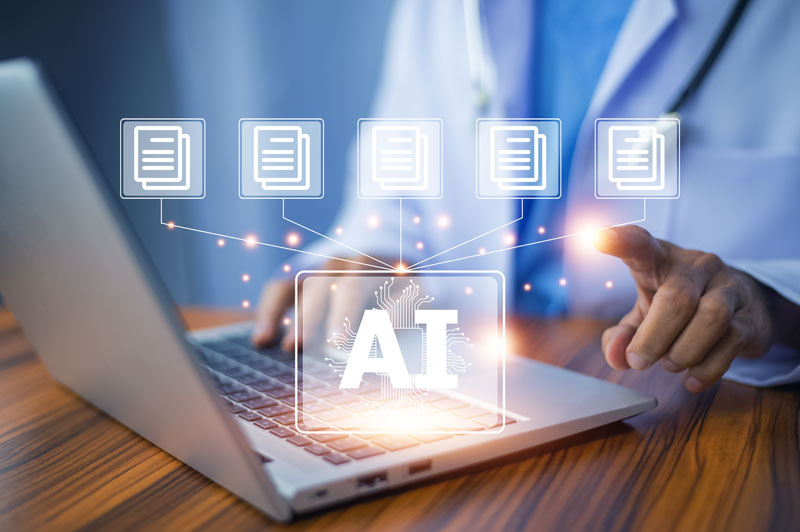2017 was a year of technological innovation, especially with the increased impact of artificial intelligence and machine learning. Recent discussions have focused on future uses of artificial intelligence in various areas such as marketing, retail, and healthcare. 2017 also saw the rise in blockchain technology and Bitcoin.
There are numerous questions surrounding the topic of blockchain technology. What exactly is it? How are Bitcoin and blockchain connected? Why does it matter? Here are some of my thoughts on blockchain technology and its future role in healthcare.
What is blockchain, and why is it important?
A Forbes article defines blockchain as “a distributed and immutable record of digital events that is shared peer to peer between different parties, or networked database systems.” A second Forbes article describes blockchains as “distributed systems that log transaction records on linked blocks and store them on an encrypted digital ledger.” In other words, records exist in a network of replicated databases — or blockchains — within a digital environment. A Harvard Business Review article explains the 5 underlying principles behind blockchain, starting with its distributed database, transparency, and irreversibility of records.
The big question when considering blockchain lies in its significance. How can blockchain impact various industries, such as healthcare? Should we trust it? Blockchain technology will result in open transactions of records or information in a verifiable, secure, and permanent way. With blockchain, any process, task, payment, or record would be contained in a digital record that can be identified, stored, and shared. Also, as a future impact of blockchain, organizations and individual parties can transact, communicate, and share information with little friction.
Potential uses of blockchain in healthcare
There is much talk about the impact of blockchain technology in healthcare. Here are some potential uses:
Patient medical records: Blockchain would offer a common database of patient health information. With this database, doctors, nurses, and providers could access such information with ease, no matter what EHR is used. Access to information within a common digital database would increase time spent on patient care, rather than wasting time searching for patient information.
Cybersecurity and privacy: Patient privacy and confidentiality are major concerns within healthcare. For those in healthcare, steps have been taken to prioritize and improve security. Although there have been initiatives, blockchain could be the solution healthcare is looking for. A network of computers would maintain this virtual, incorruptible database. Anyone running the blockchain software would have access to such information, leading to improved security. Since no single party or entity is responsible for holding the data, it can’t be altered without the approval of all stakeholders, reducing the risk of security breaches. Therefore, all participants are responsible for ensuring data integrity and security.
Collaboration and governance: The large amount of available data has increased in the past few years, and it will continue to do so. As blockchain technology continues to develop, it will improve how data is stored and shared. Hospitals need good, reliable, and timely data, but they also need the ability to share data and information across organizations. A common digital database would allow those in healthcare to easily access shared information at a faster rate. Therefore, blockchain would improve data governance because it would allow for greater trust in data, achieve greater ownership in the data, improve interoperability, and result in better data-driven decision making.
Data and analytics: As previously mentioned, blockchain technology will improve how healthcare providers store and exchange data, resulting in greater transparency and trust. Shared data within the virtual database will result in continual updates, leading to improved real-time analytics. Blockchain would allow for greater confidence in health information exchange, and this would allow organizations to collaborate to understand healthcare trends. Furthermore, healthcare providers would have an easier time identifying trends, which could have an impact on population health management and patient care.
What should we expect this year?
Many questions and much doubt arise when considering the future impact of blockchain technology. Is blockchain technology as secure as they say? What are the caveats? Should we trust having our patient information in a virtual database? Will blockchain lead to improved collaboration and data governance? Healthcare providers need to start preparing for this technology to disrupt healthcare, and society should prepare for its disruption on a greater level.
Ready for a test drive of our healthcare analytics software?
- Understanding Wineries’ Top 3 IT Priorities - September 18, 2018
- 3 Skills Tomorrow’s Distributor Executives Need to Know - August 29, 2018
- Dimensional Insight Book Club: Why We Sleep - August 23, 2018



